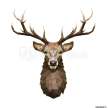A Journey Through Time: Unveiling the Rich History of India
From Struggle to Sovereignty: Tracing the Epic Tale of India's Independence and Nation-Building

Introduction:
India, a land of diversity and cultural splendor, boasts a history that spans millennia. From ancient civilizations to colonial rule and independence, the Indian subcontinent has witnessed the rise and fall of empires, the birth of religions, and the exchange of ideas. In this article, we embark on a concise yet comprehensive journey through the annals of Indian history, exploring its key periods, remarkable achievements, and enduring legacies.
Ancient Civilization and Vedic Age:
India's history dates back to the dawn of civilization, with the Indus Valley Civilization emerging around 2500 BCE. Known for its advanced urban planning and remarkable craftsmanship, this ancient civilization thrived along the banks of the Indus River. Around 1500 BCE, the Aryans migrated into the Indian subcontinent, ushering in the Vedic Age. The Rigveda, the oldest sacred text in Hinduism, reflects the cultural and religious beliefs of this era.
Mauryan Empire and the Golden Age of Gupta Dynasty:
In the third century BCE, the Mauryan Empire rose to prominence under the leadership of Emperor Ashoka. Known for his conversion to Buddhism and advocacy of non-violence, Ashoka's reign marked a pivotal period in India's history. Centuries later, the Gupta Dynasty ushered in a golden age of art, science, and literature. Scholars like Aryabhata made significant contributions to mathematics and astronomy during this era.
Islamic Sultanates and Mughal Empire:
The arrival of Islamic sultanates in the 12th century marked a transformative phase in India's history. Dynasties such as the Delhi Sultanate and the Mughal Empire left an indelible impact on the subcontinent. The Mughal emperors, including Akbar the Great and Shah Jahan, established a rich cultural legacy, exemplified by the architectural marvels of the Taj Mahal and the Red Fort. This period also witnessed the blending of Hindu and Islamic influences, shaping India's syncretic culture.
Colonial Rule and Independence Movement:
The 17th century saw the arrival of European powers, most notably the British East India Company, which gradually established control over Indian territories. The colonization of India had far-reaching consequences, as British rule brought significant social, economic, and political changes. The 19th and 20th centuries witnessed the rise of the Indian independence movement led by visionaries like Mahatma Gandhi, Jawaharlal Nehru, and Subhas Chandra Bose. After a long and arduous struggle, India finally gained its independence in 1947.
Modern India:
Post-independence, India embarked on a path of nation-building and socio-economic development. The country adopted a democratic system of governance, enshrining principles of justice, liberty, and equality in its constitution. India's journey since independence has been marked by progress in various fields, including science, technology, education, and space exploration. Today, India stands as a vibrant and diverse nation, known for its cultural heritage, pluralism, and contributions to the global stage.
Colonial Rule and Independence Movement:
The colonization of India by the British had a profound impact on the country, leading to a struggle for independence that shaped its modern history. The British East India Company gradually extended its control, imposing economic policies that benefitted colonial interests at the expense of the Indian population. This sparked resentment and resistance, ultimately giving rise to the Indian independence movement.
Figures such as Mahatma Gandhi, a prominent leader and advocate of non-violent resistance, played a pivotal role in mobilizing the masses against British rule. Through acts of civil disobedience, peaceful protests, and boycotts, Indians united in their quest for freedom and self-determination. The Salt March of 1930, in which Gandhi and thousands of followers marched to the sea to produce salt in defiance of British salt taxes, became a symbol of India's non-violent resistance and garnered international attention.
The struggle for independence gained momentum in the early 20th century, with leaders like Jawaharlal Nehru, Subhas Chandra Bose, and Bhagat Singh emerging as prominent voices advocating for India's liberation. The Indian National Congress, founded in 1885, played a crucial role in organizing and articulating the demands of the Indian people. Through political negotiations, protests, and campaigns, the movement gathered strength and garnered widespread support.
The partition of India in 1947 marked a significant turning point in its history. In the face of communal tensions and religious divides, the country was divided into two separate nations: India, with a Hindu majority, and Pakistan, with a Muslim majority. The partition resulted in widespread violence, displacement, and loss of life as communities were uprooted and forced to migrate across newly drawn borders.
After gaining independence, India embarked on the monumental task of nation-building. Under the leadership of Jawaharlal Nehru, the country adopted a socialist and secular vision, striving to build a modern, democratic, and inclusive nation. Efforts were made to promote social welfare, eradicate poverty, and advance economic development through industrialization and agrarian reforms. India's commitment to democratic principles and secularism was enshrined in its constitution, which came into effect in 1950.
Over the years, India has faced numerous challenges and made significant progress. The country has witnessed periods of rapid economic growth, technological advancement, and social change. It has emerged as a global player in fields such as information technology, pharmaceuticals, and space exploration. However, India also grapples with issues such as poverty, inequality, and communal tensions, highlighting the complexities of its diverse society.
Conclusion:
India's history is a tapestry woven with the threads of diverse civilizations, empires, and movements. From the ancient Indus Valley Civilization to the struggles for independence, India's past is replete with stories of triumph, cultural exchange, and resilience. The legacy of its remarkable achievements, philosophical ideas, and artistic expressions continues to shape the country's identity and inspire generations. As we reflect on India's rich history, we gain a deeper appreciation for its cultural tapestry and the enduring spirit of its people.
The history of India is a testament to the resilience, courage, and determination of its people. From the struggles against colonial rule to the hard-fought battle for independence, India's journey is one of triumph over adversity. The country's rich heritage, cultural diversity, and deep-rooted traditions continue to shape its identity and influence its path forward.
As India moves ahead in the 21st century, it faces the challenges of globalization, environmental sustainability, and social progress. The lessons of its history serve as a guide, reminding the nation of its remarkable journey and the need to uphold the values of justice, liberty, and equality.
India's story is a testament to the indomitable spirit of its people and serves as an inspiration to the world. Through its vibrant culture, ancient wisdom, and modern achievements, India continues to make its mark on the global stage. As we delve into the intricate tapestry of India's history, we gain a deeper appreciation for its past, present, and the immense potential that lies ahead.






Comments
There are no comments for this story
Be the first to respond and start the conversation.